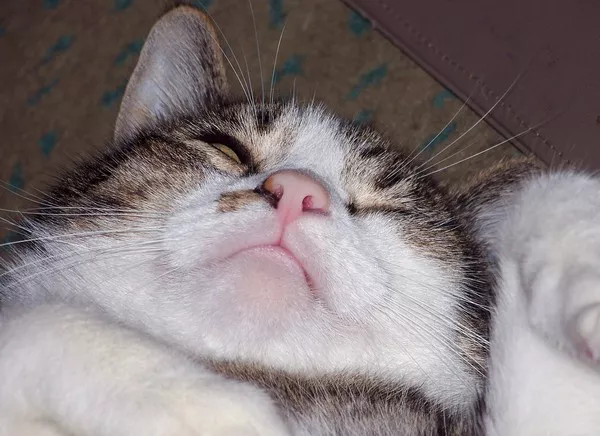As cat owners, we often seek to provide our feline companions with the best possible diet, ensuring their health and happiness. Among the many treats available, tuna is a popular choice, often seen as a delicious reward for our pets. However, the question arises: Is tuna with oil good for cats? This essay delves into the nutritional aspects of tuna, the effects of oil, potential health risks, and how to safely incorporate tuna into your cat’s diet.
The Nutritional Value of Tuna
Protein Source
Tuna is primarily composed of protein, making it an appealing option for cats, who are obligate carnivores. Protein is essential for maintaining healthy muscles, skin, and fur, as well as supporting overall bodily functions. Tuna provides high-quality protein that can be beneficial in moderation.
Omega-3 Fatty Acids
Tuna, particularly varieties like albacore and skipjack, is rich in omega-3 fatty acids, which are known for their anti-inflammatory properties and benefits for heart health. These fatty acids can contribute to a healthy coat and skin for cats, making tuna an attractive dietary supplement.
Vitamins and Minerals
Tuna contains several essential vitamins and minerals, including vitamin B12, selenium, and niacin. These nutrients play crucial roles in energy metabolism, immune function, and overall health. However, it’s important to note that while tuna is nutritious, it should not be the sole source of these vitamins and minerals in a cat’s diet.
The Impact of Oil on Tuna
Types of Oil
When considering tuna in oil, it is essential to identify the type of oil used. Common oils include vegetable oil, olive oil, and sunflower oil. Each type of oil has different nutritional profiles and potential effects on a cat’s health.
Caloric Content
Tuna packed in oil is significantly higher in calories than tuna packed in water. While some fat is beneficial for cats, excessive caloric intake can lead to obesity, a common issue in domestic cats. Obesity can result in various health problems, including diabetes, joint issues, and decreased lifespan.
Digestive Concerns
Cats have a unique digestive system that is not designed to handle large amounts of fat. While small amounts of oil can aid in nutrient absorption, too much fat can lead to gastrointestinal upset, including diarrhea and vomiting. Therefore, moderation is key when offering tuna in oil to your cat.
Potential Health Risks of Tuna
Mercury Contamination
One of the most significant concerns regarding tuna consumption is mercury contamination. Tuna, especially larger species like albacore, tend to accumulate mercury in their tissues due to their position in the food chain. High levels of mercury can lead to mercury poisoning in cats, resulting in neurological issues and other serious health problems.
Nutritional Imbalance
Relying too heavily on tuna can lead to nutritional imbalances. While tuna is rich in protein and omega-3 fatty acids, it lacks certain essential nutrients that cats require, such as taurine, which is vital for heart health and vision. A diet high in tuna can lead to deficiencies and health issues over time.
Allergies and Sensitivities
Some cats may develop allergies or sensitivities to fish, including tuna. Symptoms can include itching, gastrointestinal upset, and respiratory issues. If you notice any adverse reactions after introducing tuna into your cat’s diet, it is crucial to consult a veterinarian.
How to Safely Incorporate Tuna into Your Cat’s Diet
Moderation is Key
If you choose to offer your cat tuna in oil, moderation is essential. Treat tuna as an occasional treat rather than a staple in your cat’s diet. A small amount once a week can provide enjoyment without significant health risks.
Opt for Tuna in Water
When selecting tuna for your cat, consider choosing tuna packed in water rather than oil. This option is lower in calories and fat, making it a healthier choice for your feline friend. If you do choose tuna in oil, consider rinsing it to reduce the oil content before serving.
Balanced Diet
Ensure that tuna is part of a balanced diet that includes high-quality commercial cat food formulated to meet your cat’s nutritional needs. This approach helps prevent deficiencies and ensures that your cat receives all essential nutrients.
Monitor Your Cat’s Health
Regular veterinary check-ups are crucial for monitoring your cat’s health, especially if you include tuna in their diet. Your veterinarian can provide guidance on appropriate serving sizes and help identify any potential health concerns early on.
Alternative Treats for Cats
Other Fish Options
If your cat enjoys fish, consider offering other types of fish that are lower in mercury, such as sardines or salmon. These options can provide similar benefits without the same level of risk associated with tuna.
Commercial Cat Treats
There are many commercially available cat treats formulated with fish flavors that are specifically designed for feline dietary needs. These treats often contain balanced nutrients and are a safer alternative to human food.
Homemade Treats
For those who enjoy cooking, homemade cat treats can be a great way to provide variety in your cat’s diet. Recipes using chicken, turkey, or fish can be tailored to your cat’s preferences and dietary needs.
Conclusion
In conclusion, while tuna with oil can be an enticing treat for cats, it is essential to approach its inclusion in their diet with caution. The nutritional benefits of tuna, including high-quality protein and omega-3 fatty acids, can be advantageous in moderation. However, potential risks, including mercury contamination and digestive issues, must be considered.
To ensure a healthy diet for your cat, prioritize moderation, choose tuna packed in water when possible, and maintain a balanced diet that meets all of your cat’s nutritional needs. By doing so, you can safely indulge your feline friend while safeguarding their health and well-being. Always consult with your veterinarian regarding any dietary changes to ensure the best care for your beloved pet.
Related topic:



























